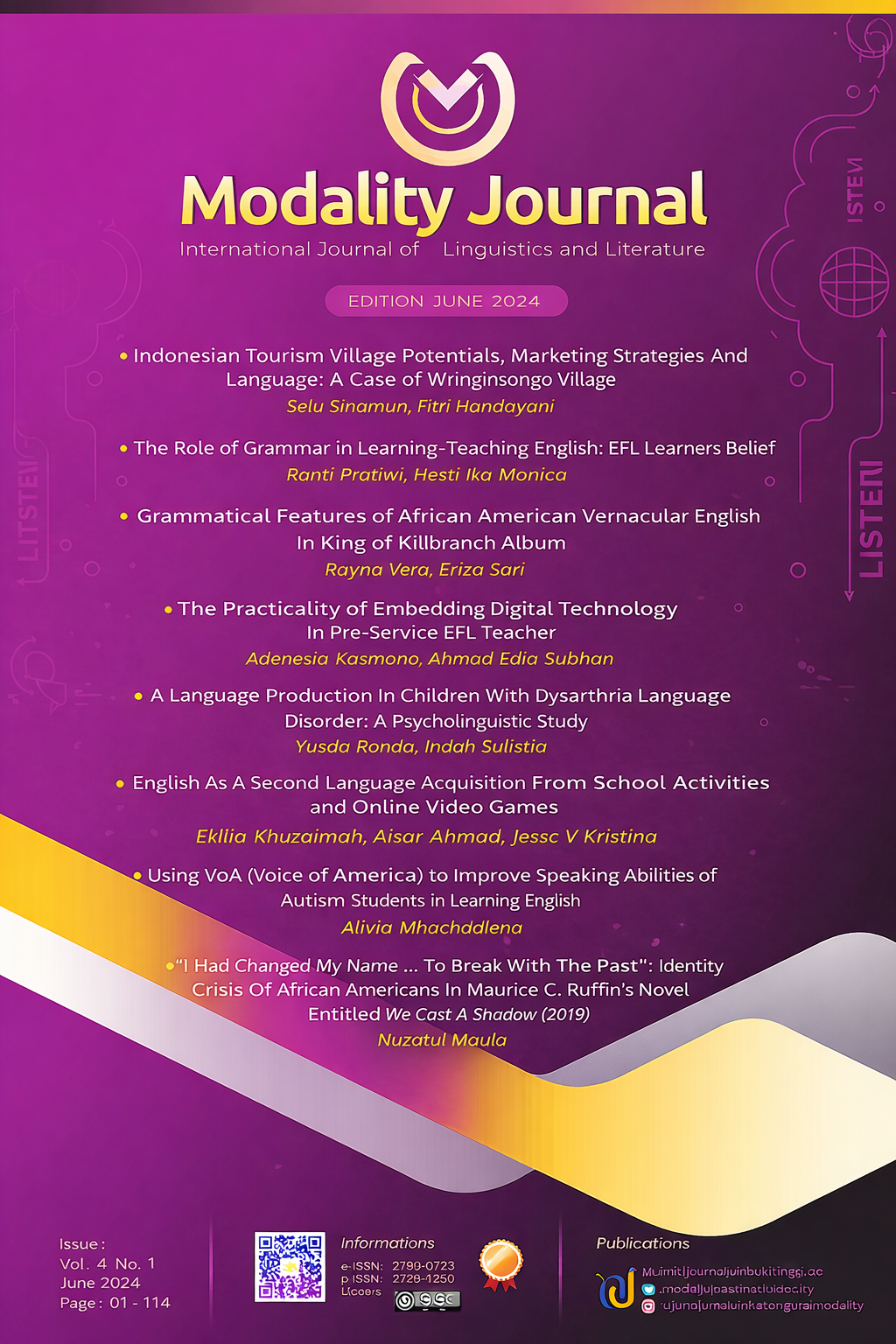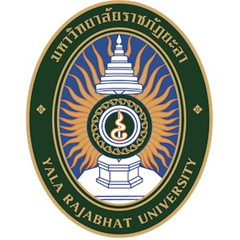The Practicality of Embedding Digital Technology In Pre-Service EFL Teacher
DOI:
https://doi.org/10.30983/mj.v4i1.8371Abstract
This research examines how pre-service teachers in Bukittinggi are taught and learn in their teaching practicum by using digital technology in the classroom. The focus of the study is on the obstacles they face due to the lack of teaching resources and the importance of using technology comprehensively, where teaching methodology and subject matter work together. Six pre-service teachers in Bukittinggi were invited to participate in the case study approach used in this research, which aims to gain an in-depth understanding of their experiences. Data was collected through video recordings of their teaching and learning process, in-person observations, interviews, and analysis of their lesson plans and teaching materials. Despite the pre-service teachers having strong knowledge and experience in using technology for classroom teaching, they often encounter difficulties when trying to implement it. This is primarily due to problems with the school's technology, poor internet connection, and limited support from their advisors. As a result, the pre-service teachers still prefer to use advanced technology devices and conventional teaching methods. The research highlights a significant difference between what the pre-service teachers have learned and how they apply it in their teaching practices. To help teachers use technology more efficiently, schools need to enhance their technology infrastructure and support.
Penelitian ini mengkaji mengenai bagaimana para calon guru di Bukittinggi menerapkan proses pengajaran dan pembelajaran dalam praktik belajar mengajar mereka menerapkan teknologi digital di kelas. Penelitian ini berfokus pada tantangan yang dihadapi terhadap keterbatasan sumber daya pengajaran dan integrase penggunaan teknologi yang penting dilakukan secara komprehensif terhadap metode pengajaran, dan materi pelajaran. Terdapat enam mahasiswa yang merupakana calon guru di Bukittinggi yang dipilih sebagai responden dari penelitian ini. Penelitian ini merupakan penelitian studi kasus untuk mengkaji secara mendalam mengenai pengalaman mereka dalam mengintegrasikan teknologi digital dalam proses belajar mengajar. Pengumpulan data dilalukan melalui perekaman video terhadap proses pengajaran dan pembelajaran dan obeservasi langsung, interview, serta analisis rencana pelajaran dan bahan pengajaran mereka. Meskipun mereka memiliki pengalaman dan pengetahuan yang kuat tentang penggunaan teknologi untuk pengajaran kelas, mereka sering menghadapi kesulitan dalam menerapkannya ke dalam praktik kelas. Hal ini disebabkan oleh beberapa masalah tentang teknologi sekolah, koneksi internet yang buruk, dan keterbatasan dukungan dari guru pamong mereka. Hal itu menyebabkan penggunaan perangkat teknologi dan cara pengajaran konvensional masih lebih disukai untuk diterapkan oleh mereka. Penelitian menunjukkan bahwa terdapat perbedaan yang signifikan antara apa yang telah dipelajari oleh calon guru dengan penerapannya dalam praktik pengajaran mereka. Untuk membantu guru menggunakan teknologi secara lebih efisien, sekolah harus meningkatkan teknologi dan dukungan mereka.
Kata Kunci: mahasiswa calon guru, teknologi, praktek mengajar
References
Abbitt, J. T. (2011). Measuring technological pedagogical content knowledge in preservice teacher education: A review of current methods and instruments. Journal of Research on Technology in Education, 43(4). https://doi.org/10.1080/15391523.2011.10782573
Aryati, S. N. (N.D.). Teachers’ Technological Pedagogical Content Knowledge (Tpack) In Teaching Efl Learners During Covid-19 Pandemic (A Comparative Study Between Rural & Urban Teachers) Thesis Submitted In Partial Fulfillment Of Requirements In Achieving A Bachelor Of Education Degree In Study Program Of English Education.
Baturay, M. H., Gökçearslan, Ş., & Şahin, Ş. (2017). Associations among teachers’ attitudes towards computer-assisted education and TPACK competencies. Informatics in Education, 16(1). https://doi.org/10.15388/infedu.2017.01
Callum, K. Mac, & Jeffrey, L. (2013). The influence of students’ ICT skills and their adoption of mobile learning. Australasian Journal of Educational Technology, 29(3), 303–314. https://doi.org/10.14742/ajet.298
Chuang, H. H., Weng, C. Y., & Huang, F. C. (2015). A structure equation model among factors of teachers’ technology integration practice and their TPCK. Computers and Education, 86. https://doi.org/10.1016/j.compedu.2015.03.016
Cuhadar, C. (2018). Investigation of pre-service teachers’ levels of readiness to technology integration in education. Contemporary Educational Technology, 9(1). https://doi.org/10.30935/cedtech/6211
Demirtaş, B., & Mumcu, F. (2021). Pre-Service Teachers’ Perceptions of ICT and TPACK Competencies. Acta Educationis Generalis, 11(2). https://doi.org/10.2478/atd-2021-0013
Glagoleva, A. V., Kachesova, I. Y., Kuznetsova, E. A., & Zemskaya, Y. N. (2021). The Role of Communications in the Leading Position of a Global University in the Time of the Economy of Knowledge. Lecture Notes in Networks and Systems, 198. https://doi.org/10.1007/978-3-030-69415-9_52
Izadinia, M. (2015). A closer look at the role of mentor teachers in shaping preservice teachers’ professional identity. Teaching and Teacher Education, 52. https://doi.org/10.1016/j.tate.2015.08.003
Kafyulilo, A., Fisser, P., & Voogt, J. (2016). Factors affecting teachers’ continuation of technology use in teaching. Education and Information Technologies, 21(6). https://doi.org/10.1007/s10639-015-9398-0
Mpungose, C. B. (2023). Lecturers’ reflections on use of Zoom video conferencing technology for e-learning at a South African university in the context of coronavirus. African Identities, 21(2). https://doi.org/10.1080/14725843.2021.1902268
Olofson, M. W., Swallow, M. J. C., & Neumann, M. D. (2016). TPACKing: A constructivist framing of TPACK to analyze teachers’ construction of knowledge. Computers and Education, 95. https://doi.org/10.1016/j.compedu.2015.12.010
Røkenes, F. M., & Krumsvik, R. J. (2014). Development of student teachers’ digital competence in teacher education. In Nordic Journal of Digital Literacy (Vol. 2014, Issue 4).
Roulston, S., Cowan, P., Brown, M., Austin, R., & O’Hara, J. (2019). All aboard or still at check-in? Teacher educators’ use of digital technologies: Lessons from a small island. Education and Information Technologies, 24(6). https://doi.org/10.1007/s10639-019-09951-x
Syamdianita, & Cahyono, B. Y. (2021). The efl pre-service teachers’ experiences and challenges in designing teaching materials using tpack framework. Studies in English Language and Education, 8(2). https://doi.org/10.24815/siele.v8i2.19202
Thompson, A., Crawford, D., Wang, W., & Niederhauser, D. (2013). Measuring TPACK Joke Voogt Punya Mishra Petra Fisser Jo Tondeur and Johan van Braak Ayoub Kafyulilo Dar es salaam University College of Education Douglas Agyei. Society for Information Technology & Teacher Education International Conference.
Valtonen, T., Sointu, E., Kukkonen, J., Kontkanen, S., Lambert, M. C., & Mäkitalo-Siegl, K. (2017). ACK updated to measure pre-service teachers’ twenty-first century skills. Australasian Journal of Educational Technology, 33(3). https://doi.org/10.14742/ajet.3518
Downloads
Published
How to Cite
Issue
Section
Citation Check
License
Copyright (c) 2024 Muthia Rahman, Haris Sandra

This work is licensed under a Creative Commons Attribution-ShareAlike 4.0 International License.
Authors who publish with this journal agree to the following terms:
- Authors retain copyright and grant the journal right of first publication with the work simultaneously licensed under a Creative Commons Attribution License that allows others to share the work with an acknowledgment of the work's authorship and initial publication in this journal.
- Authors are able to enter into separate, additional contractual arrangements for the non-exclusive distribution of the journal's published version of the work (e.g., post it to an institutional repository or publish it in a book), with an acknowledgment of its initial publication in this journal.
- Authors are permitted and encouraged to post their work online (e.g., in institutional repositories or on their website) prior to and during the submission process, as it can lead to productive exchanges, as well as earlier and greater citation of published work (See The Effect of Open Access).




